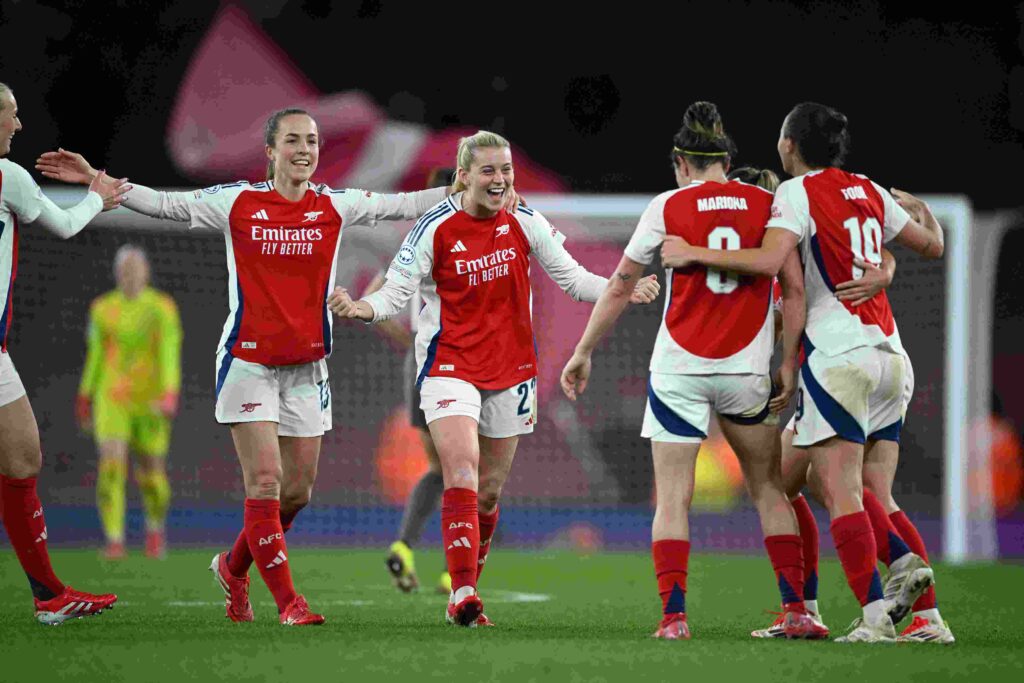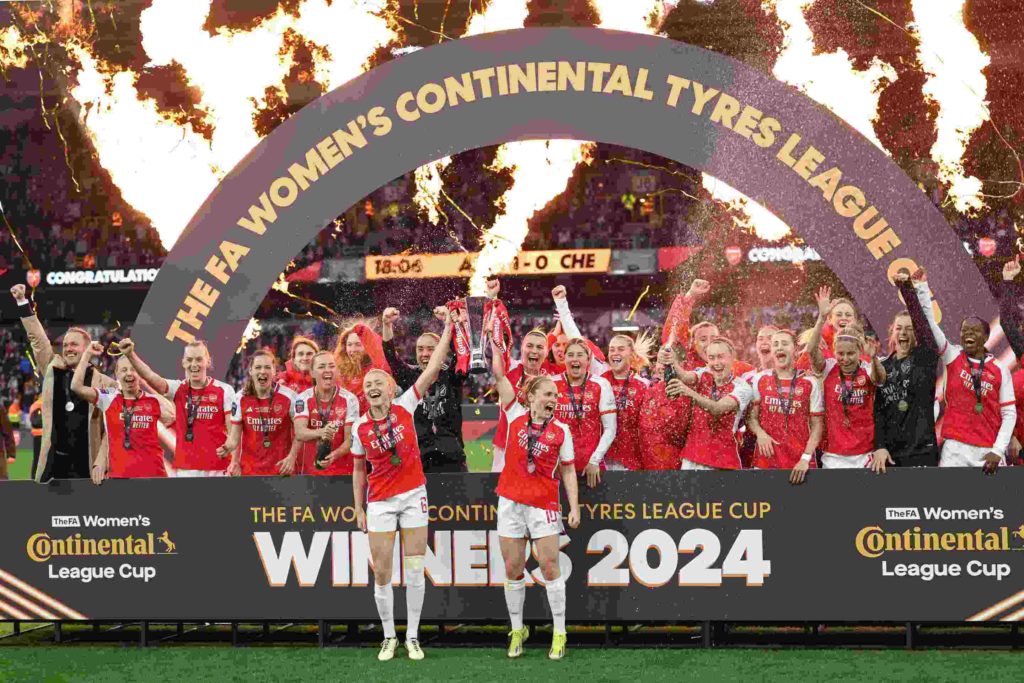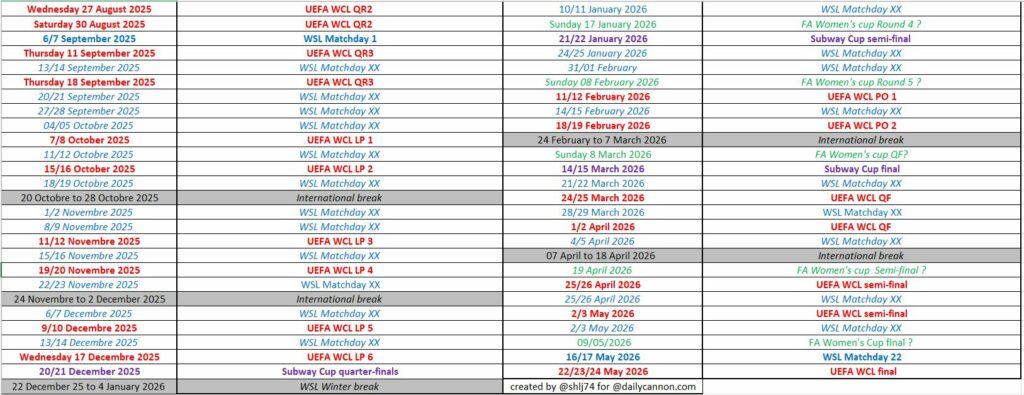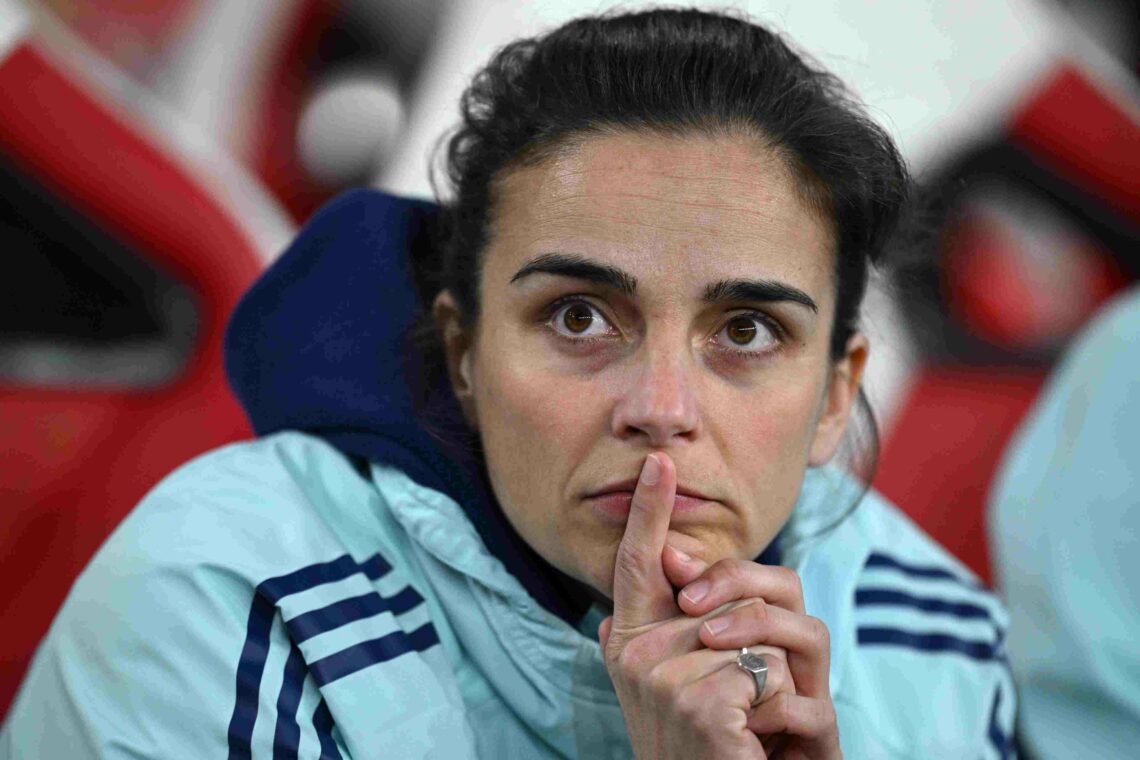The FA has released the key dates for the 2025/26 season two months earlier than usual, offering clubs and players a clearer picture of what promises to be an exceptionally demanding year.

As ever, the brunt of the pressure will fall on players competing in summer international tournaments.
The Women’s Super League will kick off on the weekend of 6–7 September 2025 and conclude on 16–17 May 2026, maintaining the standard 22-match domestic format that serves as the competitive backbone for every side in the division.
The UEFA Women’s Champions League will resume almost immediately after the conclusion of Euro 2025 on 30 July, with Qualifying Round 1 scheduled for early August.
For Arsenal, entry to the competition hinges on their final league position this season. A second-place finish would secure direct entry to Qualifying Round 3 on 11 September, offering a vital 15 extra days of rest and preparation for players returning from international duty.
A third-place finish would require an earlier return, with Qualifying Round 2 commencing on 27 August.

The congested calendar does not end there.
The Women’s FA Cup will begin in January 2026 and conclude in May, while the fourth domestic competition, the Subway® Women’s League Cup, will once again feature a full slate.
Group stage fixtures are scheduled between late September and mid-November, followed by quarter-finals on 20–21 December, semi-finals on 21–22 January, and the final set for the weekend of 14–15 March.
If we place all those dates in the calendar, we can have a provisional schedule as per below. All the weekends from September to theend of May will be booked with games alongside midweeks too.

Adding to the workload are international commitments. Players involved with national teams will be required for UEFA Nations League play-offs, 2027 World Cup qualifiers, and, for some, the Asian Cup in February 2026.
Rest and recovery windows will be few and far between. Effective player load management will be essential to prevent injury and long-term fatigue across the season.
Should Arsenal win this season’s Champions League, overcoming Lyon and potentially Barcelona or Chelsea, they will also qualify for the inaugural FIFA Women’s Champions Cup. The four-team tournament is scheduled for 28 January and 1 February 2026 and would provide Arsenal the opportunity to become the first-ever winners of the title, an enticing prospect, but yet another fixture squeeze.
The scale of the 2025/26 season cannot be understated. Arsenal may be required to compete across four or even five major competitions. Every weekend from early September to the end of May is already accounted for, with midweek fixtures filling in the gaps.
To manage this relentless schedule, squad depth will be paramount. Injuries and fatigue are inevitable; rotation and strategic rest will be critical to sustaining competitiveness on multiple fronts.
As the calendar takes shape, one thing is clear: success in the coming season will require not only quality, but endurance. For Arsenal and their closest rivals, the race will be won as much in recovery rooms and training pitches as on the pitch itself.
